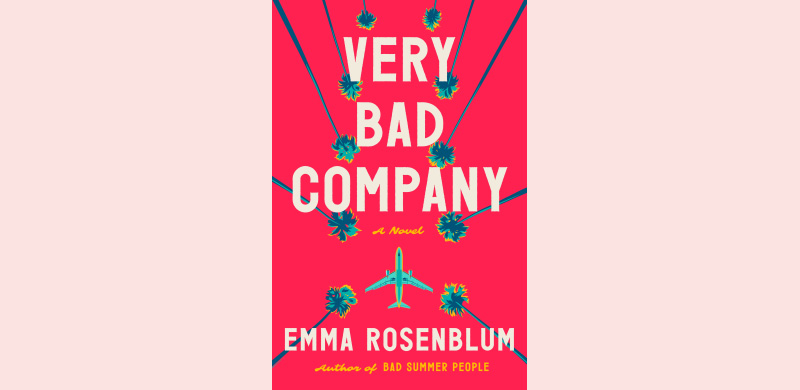Some recent trends: novels about corporate corruption; novels about sham tech start-ups; cosy mystery novels. For her second novel, Emma Rosenblum has decided to jump on all three of these waves. It must be said that she doesn’t ride any of them particularly well, but if you’re into Succession, enjoy reading about Theranos and FTX, and like the idea of friends trying to solve a murder, you’ll probably be willing to not think too hard about Very Bad Company’s technical and structural flaws.
Aurora is an AdTech start-up whose star has been burning so brightly that on the executive staff’s annual corporate retreat in Miami, the company’s CEO – a Churchill obsessive in ludicrous trousers by the semi-allegorical name of John Shiller – is able to announce the impending sale of Aurora to established tech giant Minimus for $800 million. Naturally, things are not as marvellous as they seem. The sale is based on fraudulent accounting and Shiller’s fanciful claims of Aurora pivoting to focus on events in the metaverse, a claim backed up by the recent hiring of big-name corporate events planner Caitlin Levy, on a salary so inflated it causes ripples of discontent throughout the Aurora team.
Things get worse when one of the original Aurora instigators is found dead of an overdose in the bathroom of a Miami club. Accident? Or murder? That’s what the group of female Aurora executives – informally known by the obviously sexist title of the Finger Waggers – set out to discover.
The idea of Very Bad Company is a pretty good one. There’s enough theoretical meat for satire and thriller to flourish. But neither does. Aurora and its staff are an obvious, and not very funny, joke. All the characters are underdeveloped. And the mystery is not particularly mysterious, with the reader figuring it out reasonably quickly, while the Finger Waggers never actually do. Oh, and there’s yet another instance of an author who should know better than trying to write a British character and being unable to do so without making her a painful cliché (say hi to Olive Green. Yes, Olive Green is an actual name in this book).
Meanwhile, Very Bad Company also runs into a structural issue that affects a lot of recent novels: it is built as a sequence of chapters that move from one character’s perspective to another, but because of the number of characters, the shortness of the book, and Rosenblum’s inability to pull off evocative character sketching, all this does is keep the novel resolutely flat.
Still, there’s some illicit sex, a lot of send-ups of moronic multi-millionaires – some of which draw a smile – and a happy ending. If that sounds like enough, have at it.







Click here to change your cookie preferences